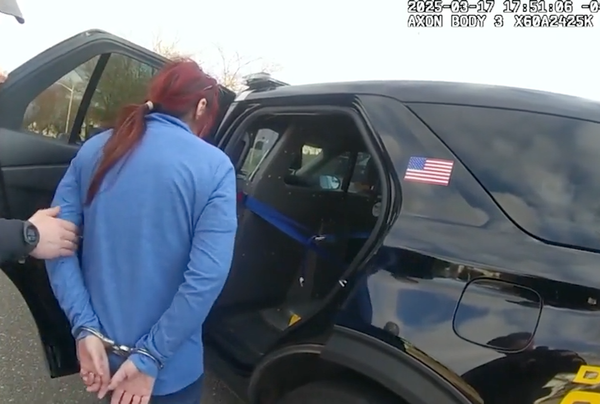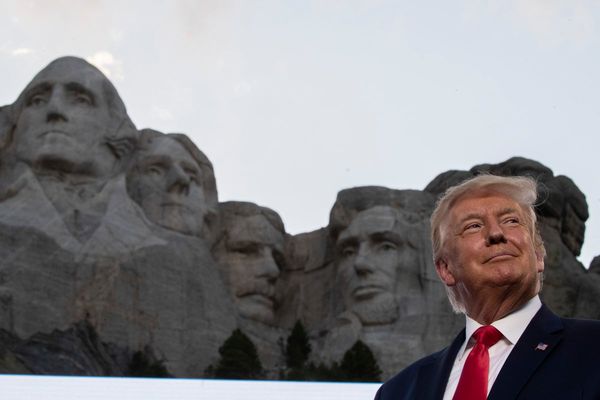
As New Zealand's ski season starts, a bold challenge has been laid down to give female skiers and snowboarders equality on the slopes, Sara Essig Webb reports.
One of the things that vexes World Cup freeskier Laura Wotton most is being told by coaches she should "ride like a guy".
"What? I'm not a guy," Wotton says in a new documentary that lays out the obstacles faced by New Zealand females in snow sports. "I want to be told you should ride like a girl, or look up to this girl."
Kiwi girls and women have been wowed watching Zoi Sadowski-Synnott, Alice Robinson and Jess Hotter climb to the top of snow sport's world stage.
But Laura Hedley knows that’s not enough.
As a girl who grew up in the mountains, Hedley is now the general manager of the Cardrona and Treble Cone ski areas, a role she’s held for the past year. And she and her team are spearheading a campaign to inspire wāhine to take up snow sports – one Instagram post at a time.
The “All In” campaign challenges everyone in the New Zealand ski industry to commit to equal gender representation in snow sports media.

The project came about during a journey of self-reflection by the team who run Cardrona and Treble Cone.
According to research they undertook, their social media audiences are made up by nearly 45 percent women. But in the winter of 2020, only 29 percent of skiing and snowboarding content featured women.
Posts showing women actively participating were scarce – just 15 percent. In many cases they were a single snapshot within a longer clip featuring mostly men.
“At the end of 2020, our team took stock of gender representation in our social media content,” Wānaka-based Hedley explains. “It quickly became clear that we were perpetuating gender stereotypes, often reducing women to ‘lifestyle’ content.”
With the Cardrona skifield opening last weekend to kick off the winter season, and plenty of snow falling on our mountains, the Southern Lakes ski areas have released two films. The first is a celebration of great skiing and snowboarding, showcasing the talent of wāhine in the mountains.
The second is a short documentary about the experience of women in the New Zealand snow sports industry. The documentary, ‘All In,’ (watch below) features interviews with top talent from across Aotearoa, including Freeride World Tour champion Jess Hotter, Olympians Cool Wakushima and Janina Kuzma, up and coming female athletes and women’s health professionals who play a critical role behind the snow sports scene. It looks at the differences in media, biology and culture for female skiers and snowboarders.
“All In is a celebration of Kiwi women in snow sports, highlighting the challenges that many face, while discussing hopes for a more equitable future in the New Zealand snow sports industry,” Hedley says.
They already made a start on righting the imbalance last winter.
Cardrona and Treble Cone ensured 50 percent of their social media content featured women. In 2022, their two biggest pre-season campaigns – the annual earlybird season pass and multi-day pass sales – have exclusively showcased images of women in snow sport.
“This was a first in New Zealand and proved that focusing on women in sport can be incredibly powerful - both inspirational and driving commercial success,” says Hedley.
"Mark my words - we are catching up," Jess Hotter in 'All In'.
Looking ahead, Cardrona and Treble Cone have committed to equitable gender representation in all marketing media, encouraging more people to find their passion in the mountains. They are challenging other snow sports brands to join them.
“We know this is just a good start – it’s not all that needs to be done,” says Hedley. “We’ll keep asking ourselves and others the questions that need to be asked. We’ll listen, we’ll learn, and we’ll keep making change.
“However, this change can’t be something we do alone.”
Nic Cavanagh, chief executive of Snow Sports NZ, is aware of the underrepresentation of women in high performance snow sports coaching around the world.
Numbers are more evenly split at the participation level, where the largest fields in New Zealand’s alpine ski races last year were the U12 and U14 girls. Cavanagh notes World Cup alpine ski racer Alice Robinson has had a significant influence on younger competitors.

So why are there so few female coaches?
“International travel is a big part of it,” Cavanagh points out. "The coaches spend at least half the year overseas, following the international competition circuit. It’s a pretty tough gig for anyone, male or female, especially if you have a family."
As an organisation, Snow Sports NZ has reflected on their approach to supporting women who want to train toward high performance coaching. This could include starting the process of recruiting female coaches for the high performance programme much earlier in the pathway, “nurturing and developing at the instructor level,” Cavanagh says.
Right now, six of the 11 athlete performance staff at Snow Sports NZ are women. Jane Stevens, adapative and para sport development manager, serves on several International Paralympic Committees. Doctors Sarah Beable and Nat Anglem work with athletes, parents, coaches and performance support staff on education initiatives around women’s health.
"A lot of people have been concerned with an athlete getting her period on race day... but it could be their performance superpower," Sarah Beable in 'All In'
Last year, Snow Sports NZ put alpine coach Lucy Brown forward for the Women in High Performance Sport project, Te Hāpaitanga, which gives female coaches mentors and networks.
Fiona Stevens has just been voted onto the FIS Council, the board for all snow sports disciplines led by the world body, becoming the first New Zealander to sit at this table.
While there are wins on the board and on the mountain, more can be done, Hedley insists.
“We've started a programme called Ride Tamariki, for the kids in the region to come up the mountain and experience it,” Hedley explains.
She grew up believing every child could benefit from time in the mountains. Her mother was a ski patrol nurse and her father was a ski instructor.

Hedley rebelled against the family tradition and started snowboarding at a young age.
“My parents were adamant that the mountains were a good place for us to be growing up,” she recalls.
Today, five senior managers report directly to Hedley, whose leadership extends across 16 departments and influences the work of up to 900 staff between the two resorts. She cites the influence of female leaders in the Southern Lakes region for growing her confidence and preparing her for the general manager role.
“I’ve had these amazing people around me. We ask our staff to give everything they’ve got,” she says. “So guests leave feeling that they’ve got this mana from being up there; they feel better for being on the mountains. If we’re asking our staff to do that,we need to do that for our teams.”
Hedley’s brand of leadership is learning on the job, and has certainly been shaped by the mountains. In one breath, she can champion a national movement around equity and diversity. In the next, she sounds like a fangirl, speaking of New Zealand’s first winter Olympic gold medallist Sydowski-Synott and and World Freeride Tour champion Hotter.
"If you see what girls are doing now on snowboards and skis, it's absolutely phenomenal. I'm so stoked to have that behind me, to grow into the rest of my life as a woman," snowboarder Corrah Phillips in 'All In'.
The world is watching the Southern Lakes, and Hedley knows this is the moment.
“They are showing that they are so strong,” she says. “And that it’s possible to be on the world stage in snow sports, even when you’re from New Zealand.”







